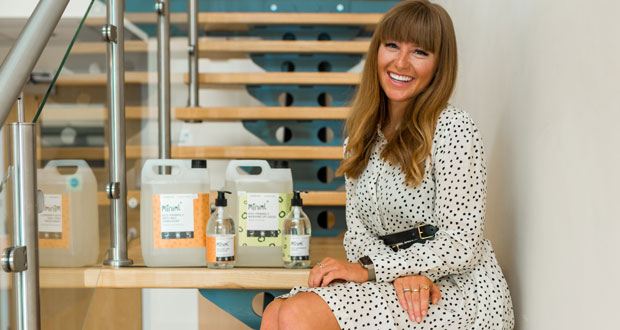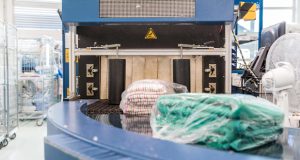By Emma Tapper, Co-Founder of The Friendly Chemical Company
Spurred by a surge in demand for cleaning products as a result of the pandemic in 2020, the sustainable cleaning products industry has grown massively in recent years. Newly published data shows that in 2021, the total value for environmentally friendly laundry, surface care, dishwashing, bath and shower goods will reach $72.9 billion in global retail value in 2021. By 2026, this figure will reach $109.7 billion.
Such huge growth has presented a paradox within the cleaning industry. Many brands are tapping into sustainability as a trend, offering ‘eco-friendly’ household cleaning products. Yet, most UK cleaning chemical manufacturers do not consider how to ensure sustainability continues once the lifespan of their cleaning products is over.
This begs the question, how can cleaning product manufacturers really ensure sustainability within an industry which so often claims to have the environment at its core?
For the cleaning product industry, a change in how we approach the life of a product is key to solving the sustainability problem. We must look beyond simply using recycled packing and clean ingredients at the very beginning of a product’s life cycle. Instead, we should consider sustainability at every stage of the supply chain.
The rise in popularity of ‘zero-waste’ products is evidence that such disruption is welcomed by consumers, with eco-conscious customers looking for products they can reuse and refill. According to Brandbean’s Eco Study 2020, 89% of adults were more likely to buy a product if its packaging could be reused. However, few brands are wholly committed to a completely zero waste supply chain.
At Friendly Chemical Company, we are one of only a few UK manufacturers to operate a fully closed loop system. After buying cleaning products from our brand Miniml, customers can access refill stations all over the country, and we also collect empties weekly from our stockists or customers, to be cleaned and reused on the production line. This model means that we reuse and refill every bottle that we sell – which is setting a great example for disruption within cleaning product industry.
The supply chain itself is not the only area that can be disrupted within the industry. It is also vital that chemical manufacturers consider the environmental impacts of the factories and transport systems which support it. For example, our factory uses solar panels to provide all its energy. We also collect and return empties at the same time, to reduce carbon emissions.
In this way, we put sustainability first at every stage of our products’ lifecycle – a disruptive approach which will be key to changing the way in which cleaning product manufacturers embrace sustainability.
The industry still has a long way to go before this becomes a universal approach, with every supermarket having their own returnable product banks, for example. But by pushing forward disruptive initiatives such as the closed loop system, we can shift the industry towards a zero-waste model which truly prioritises sustainability, from the production line to the refill station and beyond.





